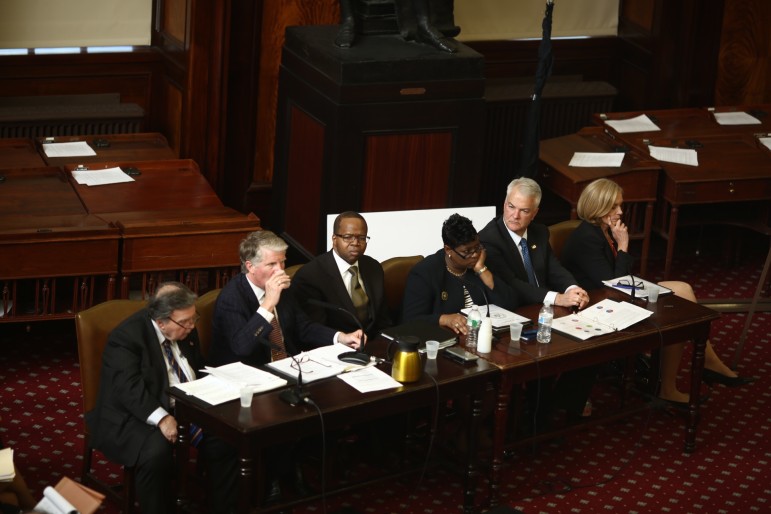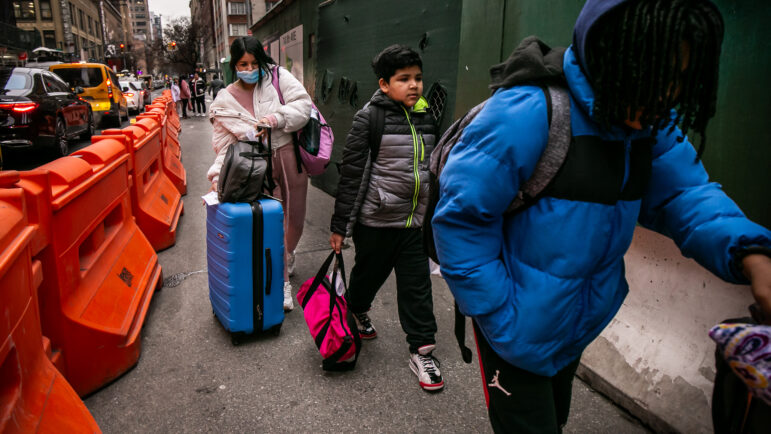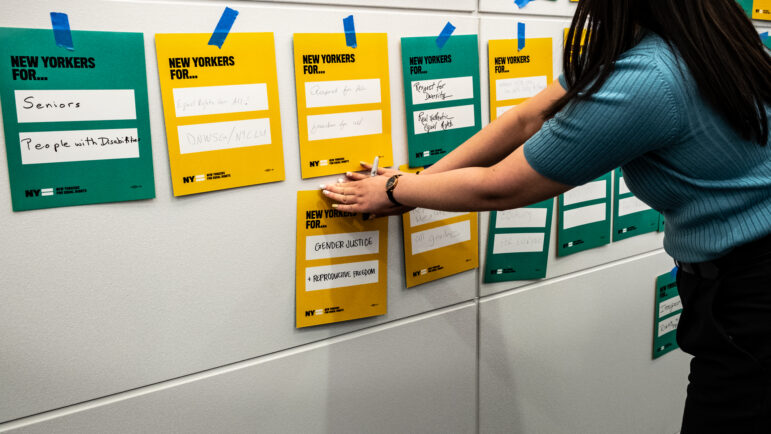
William Alatriste for the New York City Council
DA Kenneth Thompson, third from left, testifying before the City Council's public safety committee earlier this month along with, from left to right, Queens' Richard Brown, Manhattan's Cyrus Vance, Darcel Clark of the Bronx, Michael McMahon of Staten Island and special narcotics prosecutor Bridget Brennan.
Brooklyn District Attorney Kenneth Thompson has dedicated his administration to correcting injustices: His Conviction Review Unit has moved to vacate 19 convictions in Thompson’s 26 months in office. And he notched a rare conviction last month against a police officer accused of a wrongful killing.
On Wednesday, however, Thompson argued that the interests of justice demanded that Liang avoid prison for his actions.
“Peter Liang was indicted, prosecuted and subsequently convicted by a jury because his reckless actions caused an innocent man to lose his life. There is no evidence, however, that he intended to kill or injure Akai Gurley. When Mr. Liang went into that building that night, he did so as part of his job and to keep the people of Brooklyn and our city safe,” Thompson said in a statement. “In sentencing a defendant, the facts of the crime and the particular characteristics of that person must be considered. Mr. Liang has no prior criminal history and poses no future threat to public safety. Because his incarceration is not necessary to protect the public, and due to the unique circumstances of this case, a prison sentence is not warranted.” Thompson’s recommendation to the judge overseeing Liang’s case was for a sentence of five years probation, six months of home confinement and 500 hours or community service.
The decision pleased neither the victim’s family, who wanted prison time, nor police unions, who thought Liang should never have been prosecuted at all for walking into an apartment-building stairwell with his finger on the trigger of his gun and reacting sluggishly when the shot he fired pierced an innocent man’s chest.
The lack of evidence that Liang intended to kill Akai Gurley is, of course, elemental to the very crime of which Liang was convicted, manslaughter in the second degree. The state’s penal law says, “A person is guilty of manslaughter in the second degree when … he recklessly causes the death of another person.” That is different from manslaughter in the first degree, which is when “with intent to cause serious physical injury to another person” someone kills someone else.
In other words, in convicting Liang of second-degree manslaughter, the jury took as a given the notion that Liang had not intended to kill.
According to the latest available statistics, there were 257 people serving time in New York State prisons in 2014 for the crime of manslaughter in the second degree. For the vast majority—195 of them—that was their first felony conviction.
Liang, who has been fired by the NYPD, faced up to 15 years in prison. A judge will make the final decision on Liang’s sentence, and judges do sometimes impose sentences stiffer or more lenient than prosecutors have recommended. “As I have said before, there are no winners here. But the sentence that I have requested is just and fair under the circumstances of this case,” Thompson’s statement continued. “From the beginning, this tragic case has always been about justice and not about revenge.”








